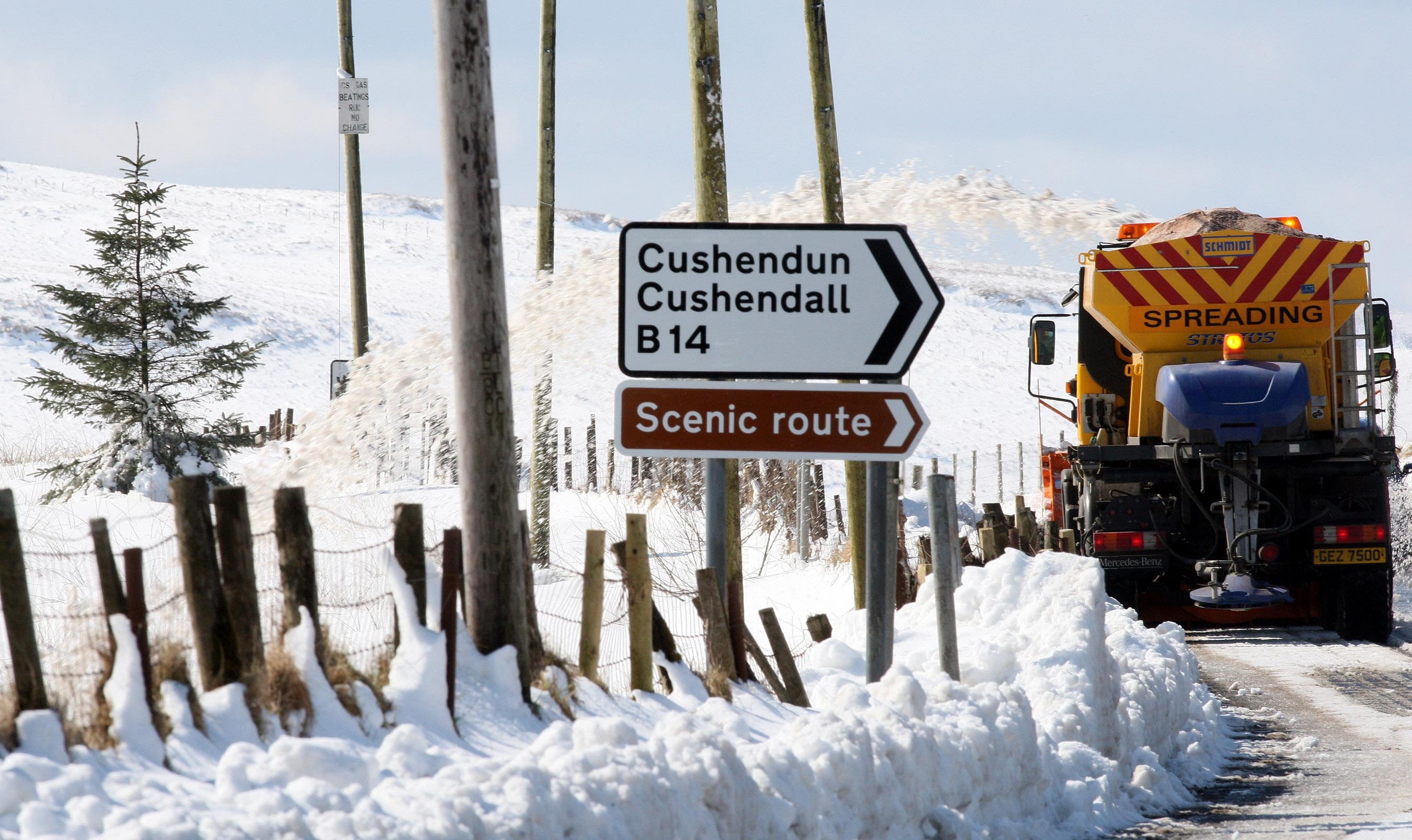5,600 grit boxes and 63,000 grit piles delivered for winter weather
Stormont Infrastructure Minister Nichola Mallon outlined her department’s winter planning in the Assembly.

Your support helps us to tell the story
From reproductive rights to climate change to Big Tech, The Independent is on the ground when the story is developing. Whether it's investigating the financials of Elon Musk's pro-Trump PAC or producing our latest documentary, 'The A Word', which shines a light on the American women fighting for reproductive rights, we know how important it is to parse out the facts from the messaging.
At such a critical moment in US history, we need reporters on the ground. Your donation allows us to keep sending journalists to speak to both sides of the story.
The Independent is trusted by Americans across the entire political spectrum. And unlike many other quality news outlets, we choose not to lock Americans out of our reporting and analysis with paywalls. We believe quality journalism should be available to everyone, paid for by those who can afford it.
Your support makes all the difference.More than 5,600 grit boxes and 63,000 grit piles have been delivered across Northern Ireland to prepare for winter weather.
Infrastructure Minister Nichola Mallon said main through roads which carry more than 1,500 vehicles a day are also salted.
In addition roads with “difficult topography” which carry between 1,000 to 1,500 are also salted in exceptional circumstances.
She said 28% of the road network is salted serving 80% of daily traffic across Northern Ireland.
Ms Mallon said she would like to do more, but to increase to 90% or 100% would double the cost to £14m or quadrupling it to £28m which she described as “not financially feasible”.
Ms Mallon told MLAs during infrastructure questions that the delivery of winter services “has been ongoing since 18 October” and will continue until the end of the winter season.
“As part of planning for the winter gritting programme, my department ensures that adequate staff resource is available, all winter service equipment is in satisfactory working order and there are adequate supplied of salt,” she said.
“There are also arrangements in place to supplement contracting resource and stocks of salt during the winter period if this becomes necessary.
“The department generally salts the main through roads which carry more than 1,500 vehicles per day with roads having difficult topography and carrying between 1,000 and 1,500 vehicles daily also being salted in exceptional circumstances.
“Preparing for the emergency response to flooding is an ongoing process throughout the year as heavy rainfall can occur at any time but as winter arrives there is an increased risk of adverse weather which could lead to flooding conditions.”
Questioned by Ulster Unionist MLA Alan Chambers on whether additional gully cleaning is carried out in “flooding hotspots”, Ms Mallon says the department keeps an “close eye on areas of concern”, but is limited by its budget.
“Of course I would like to do much more in a range of services but unfortunately due to the budget cuts imposed on the department a number of years back services have had to be reduced,” she added.
“That is not just disappointing, it is counterproductive, and that is why I continue to make the case at the Executive for increased funding to be allocated to the department for infrastructure so they can carry out those services that are so critical to communities and businesses across Northern Ireland”.
Meanwhile Ms Mallon said her department received 571 high priority inquiries during Storm Barra of which 247 related to fallen trees and branches causing an obstruction on roads.
She said her department works with the Met Office and communities to be as prepared as possible, but warned that if the climate emergency is not tackled, extreme weather events are going to become more frequent.